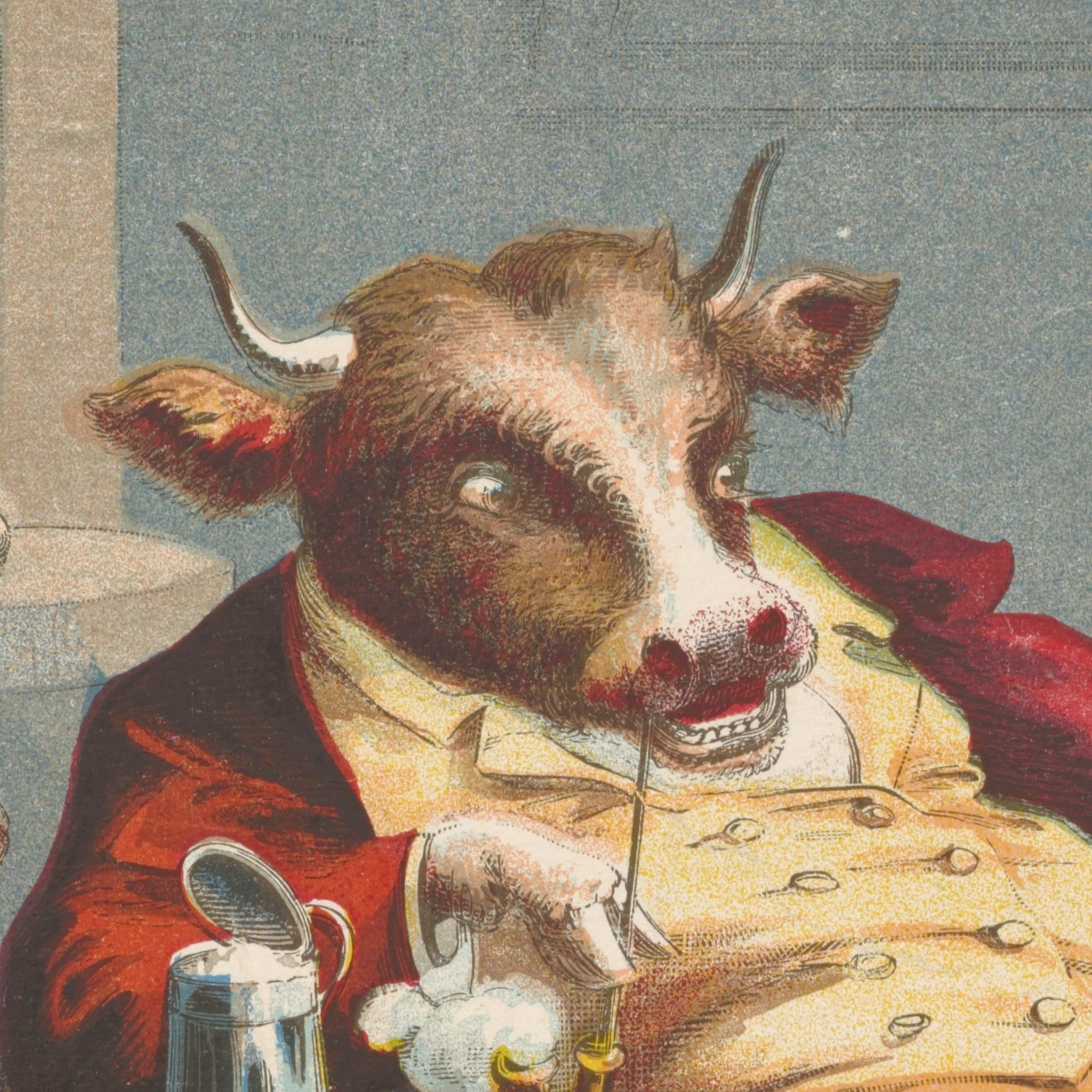Actual journalism — the kind where reporters go out in the field, collect information in person, and bring a story to the public, rather than acting as recorders for politicians, police departments, and corporate bosses — has been spiraling downward for decades. You can see it in the ever-decreasing number of local and national newspapers. You can measure it by declining viewership, or by the wave of former journalists crowding LinkedIn in the hunt for other employment.
That kind of journalism is expensive. It requires newsrooms full of people, a commitment to confront the powerful, and a belief in sharing the truth no matter how unpleasant.
But propaganda ... Propaganda is easy. Cheap, too. None of those costs that come from legions of reporters stationed around the world. None of the problems generated by months-long investigations that may offend the powerful. Just repeat the words handed you by the people in charge—or better yet, let them deliver the words themselves—then spend the rest of the time showing pundits gushing over their brilliance.
For years, independent journalists have been sounding the alarm about corporate media tipping away from journalism and toward propaganda. Soft-pedaling fascism. Ignoring reality. Providing consumers with an unending stream of distorted pablum while refusing to confront blatant lies.
Now it's just about time to flip off that alarm switch. Because the transition period is over.
The real wonder may be that, for a time, journalism was a thing that actually existed. There was a period — a brief period in the history of the nation — in which someone might pick up a national newspaper, or flip onto a news program, and have a genuine expectation of finding carefully verified facts and impartial information. Some of us were even lucky enough to take part, even if on the fringes.
It was a good time for journalism and for the nation. A bad time for the powerful.
If you're searching for journalism's epitaph, don't expect to find it on any front page. But you might tease out a reference in an article at PR Week explaining why the Washington Post is ditching its public relations division.
The Post's chief communications officer Kathy Baird announced that, rather than using the PR department to promote stories at the Post, the new focus will be on building the brands of contributors into a "star talent unit."
“Talent-driven journalism is the future of media, and personalities and creators will lead the way," said Baird. Because making the Post more like TikTok is clearly what the nation needs now.
This isn't just Baird's idea.
The new focus on personalities’ profiles, external presence and engagement was first communicated to staff by publisher and CEO Will Lewis last April.
If this sounds like the Washington Post abandoning the whole concept of journalism for Fox News-style punditry, that's because this is exactly what Lewis and Baird have in mind. It's replacing reporters with "creators" and investigators with "personalities." It's the Murdochization of what has been until recently the nation's premiere political news outlet.
It's a final, ignominious disassembly of the Post that published the Pentagon Papers and broke open the story of Watergate. The paper's future is far more Sean Hannity than Bob Woodward (or more like the Woodward who repeated George W. Bush's claims that there were weapons of mass destruction in Iraq than the Woodward who uncovered Richard Nixon's crimes).
For years, it seemed that Rupert Murdoch was the problem with American journalism. Now it's clear that he was a prophet. His idea that billionaires can use media outlets to convince the masses to support the powerful and sneer at good governance may be the defining concept of the coming age.
The Disinformation Age.
Just three months ago, owner Patrick Soon-Shiong ordering the Los Angeles Times to pull its endorsement of Kamala Harris was such an outrage that it spawned a series of resignations. Also just three months ago, Elon Musk's Twitter was derided as the only major social media site that disdained any effort to fight disinformation and hate speech.
But Soon-Shiong and Musk were just ahead of the pack. The story of the news media post-election hasn't been about course-correcting the miserable reporting that turned a man who led an attempted coup into an acceptable second-term candidate. The last three months have been a mad scramble to bend the knee.
It's been a period of CEOs queuing up to visit Mar-a-lago, billionaires pledging their allegiance, and media outlets rushing to destroy the whole concept of objective reporting. Trump has raked in so much money for the inaugural that he has run out of fake perks to give away.
The president-elect has raised more than $170 million for his swearing-in, an inaugural record, as wealthy Americans flock to curry favor with him and some give money even without the prospect of V.I.P. access.ut
But money is only one way the ultra-rich are hustling to show that they've over the whole pretense of democracy.
Just this week, Mark Zuckerberg strolled on stage to announce that not only would Meta drop any idea of fighting disinformation and hate speech on Facebook and Instagram, he would move Meta employees from California to Texas to avoid "bias." Because there's evidently no bias in Texas.
There are also no rights for women. But I'm sure his female employees will be thrilled to move to a state that puts their bodies under the control of Ken Paxton.
"It feels like we're in a new era now," says the reborn Zuckerberg who has dropped his "just one of the guys" T-shirts and jeans costume for designer sweaters, gold chains, and a $900,000 watch.
But Nobel Prize winner Maria Ressa has something to say about this new era.
The American-Filipino journalist said Mark Zuckerberg’s move to relax content moderation on the Facebook and Instagram platforms would lead to a “world without facts” and that was “a world that’s right for a dictator”.
“Mark Zuckerberg says it’s a free speech issue – that’s completely wrong,” Ressa told the AFP news service. “Only if you’re profit-driven can you claim that; only if you want power and money can you claim that.”
Zuckerberg wants money and power. Strike that. He wants more money and more power. So of course he says that.
By no coincidence, the destruction of national media and the end to fact-checking on social media outlets also comes at a time when the Heritage Foundation has also announced its intention to destroy mediation on Wikipedia.
Their method for stopping editors from correcting articles is simple enough: They intend to dox Wikipedia contributors and threaten them until they stop.
Employees of Heritage, the conservative think tank that produced the Project 2025 policy blueprint for the second Trump administration, said they plan to use facial recognition software and a database of hacked usernames and passwords in order to identify contributors to the online encyclopedia, who mostly work under pseudonyms.
In a slide published by the nonprofit media site Forward, Heritage details its plan to use "data breach analysis" (i.e. hacked and pirated data), text patterns, fingerprinting, and human intelligence to "target" Wikipedia editors.
The next step, the one where they publish that information to Trump's eager army of bullies, isn't on the slide. It doesn't have to be.
Elon Musk has also been attacking Wikipedia. In December he urged Twitter users to stop sending any donations to the online data source because of a false story from a notorious right-wing propagandist who claimed that much of Wikipedia's income goes to "equity."
The $31 million that Musk and "Libs of TikTok" claimed went to DEI programs actually went to local reporters facing some of the toughest situations on the planet. That includes reporters trying to gather accurate data in the Middle East, journalists researching social issues in remote areas of Brazil, and the Racial Equity in Journalism Fund in the United States — a fund that backs reporters doing actual, first-person, on-the-ground local journalism.
Journalism takes money. Wikipedia shares some of its money with journalists. And that's offensive to the people trying to end every vestige of journalism.
It wasn’t that long ago that Wikipedia was regarded as a low-quality source, one suspect enough that high school students could be marked down for citing its pages in their homework. Now that site stands head and shoulders above former journalistic giants. Because those giants have been chopped off at the knees by their sycophantic owners.
Wikipedia is now one of the few remaining outlets that is widely trusted. It's also one of the few that has the reach and the funds to back the collection of facts, correct mistakes, and fight against deliberate disinformation.
This is, of course, why Heritage, Musk, and other right-wing powers are coming for them.
If "Democracy dies in darkness" as the byline on the Washington Post still claims, then it's getting very dark out there. Every little glimmer of remaining light draws in predators anxious to make that night complete.
We're at a point where major media outlets have enormous disdain for fact-gathering or fact-checking. It threatens the powerful. And they are the powerful.
The tilt from journalism to propaganda is how you end up with headlines like this from the Wall Street Journal.

Elsewhere in the article, the Journal goes a bit more deeply into Trump's plans.
President-elect Donald Trump’s calls to take control of Greenland, Canada and the Panama Canal reflect his fascination with a 21st-century version of an old idea—that great powers should carve out spheres of influence and defend their economic and security interests by imposing their will on smaller neighbors.
Yes. That old idea does seem somewhat familiar. It's the same idea that spawned two world wars and cost the lives of hundreds of millions of people around the globe. The thought of bringing it back should be anathema to every thinking person and cause for screaming headlines in opposition.
Nope.
The Washington Post just skipped over the whole idea by focusing instead on Trump's ridiculous promise to rename the Gulf of Mexico. The threat to attack allied nations didn't merit even a small headline (or any follow-up coverage on day two).
The whole "Sphere of Influence" idea now being revived by the Journal and championed by pundits on Fox and elsewhere dates from the height of European colonialism when Germany and Great Britain signed a treaty to complete the division of Africa and Asia. Trump's "21st-century version of an old idea" would quite literally erase the entire progress of the 20th century. The one that used to be called the American century.
The propagandists dutifully noted down his words. Now they are waiting for his next instructions.
After all, democracy, impartial journalism, and America are all old ideas that grew up together. They were never perfect. They were never even close. But they were so much better than what's coming now.
It only seems right that they should all go hand and hand into the darkness.














Comments
We want Uncharted Blue to be a welcoming and progressive space.
Before commenting, make sure you've read our Community Guidelines.